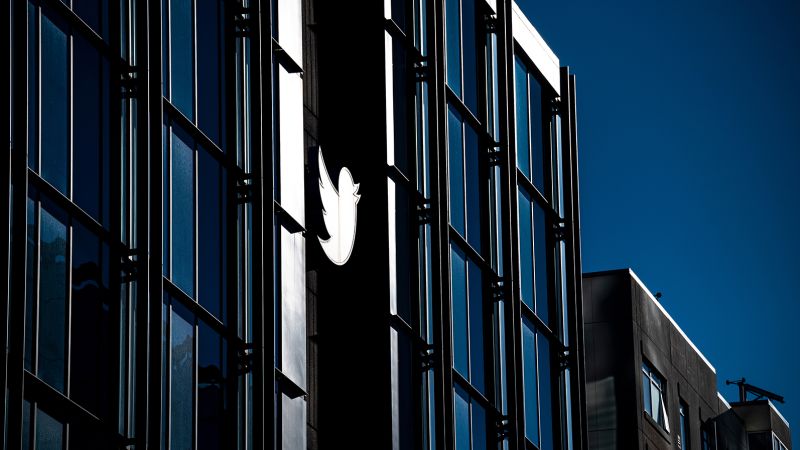New York
CNN
—
Twitter on Thursday evening banned the accounts of several high-profile journalists from top news organizations without explanation, apparently marking a significant attempt by new owner Elon Musk to wield his unilateral authority over the platform.
The accounts belonging to CNN’s Donie O’Sullivan, The New York Times’ Ryan Mac, The Washington Post’s Drew Harwell and other journalists who have covered Musk aggressively in recent weeks were all abruptly permanently suspended. The account of progressive independent journalist Aaron Rupar was also banned.
Neither Musk nor Twitter responded to a request for comment Thursday evening, and the platform did not explain precisely why the journalists were exiled from the platform.
Musk falsely claimed that the journalists had violated his new “doxxing” policy by sharing his live location, amounting to what he described as “assassination coordinates.” CNN’s Donie O’Sullivan did not share the billionaire’s live location.
Shortly before his suspension, O’Sullivan reported on Twitter that the social media company had suspended the account of an emerging competitive social media service, Mastodon, which has allowed the continued posting of @ElonJet, an account that posts the updated location of Musk’s private jet.
Other reporters suspended Thursday had recently written about the account.
Doxxing refers to the practice of sharing someone’s home address or other personal information online. The banned account had instead used publicly available flight data, which remain online and accessible, to track Musk’s jet.
The bans raise a number of questions about the future of the platform, which has been referred to as a digital town square. It also called into serious question Musk’s supposed commitment to free speech.
Musk has repeatedly said he would like to permit all legal speech on the platform. In April, on the same day he announced he would purchase Twitter, he had tweeted: “I hope that even my worst critics remain on Twitter, because that is what free speech means.”
A CNN spokesperson said the company has asked Twitter for an explanation, and it would “reevaluate our relationship based on that response.”
“The impulsive and unjustified suspension of a number of reporters, including CNN’s Donie O’Sullivan, is concerning but not surprising. Twitter’s increasing instability and volatility should be of incredible concern for everyone who uses Twitter,” the spokesperson said.
A New York Times spokesperson called the mass bans “questionable and unfortunate,” adding: “Neither The Times nor Ryan have received any explanation about why this occurred. We hope that all of the journalists’ accounts are reinstated and that Twitter provides a satisfying explanation for this action.”
“Elon says he is a free speech champion and he is banning journalists for exercising free speech,” Harwell told CNN on Thursday. “I think that calls into question his commitment.”
Rupar, too, said he had heard “nothing” from Twitter about the suspension.
Several organizations condemned Twitter’s decision, with the head of the American Civil Liberties Union saying: “It’s impossible to square Twitter’s free speech aspirations with the purging of critical journalists’ accounts.”
The president of the Society of Professional Journalists (SPJ) said in a statement it was “concerned” about the suspensions, and that the move “affects all journalists.”
The @ElonJet account, which had amassed more than 500,000 followers, was permanently suspended Wednesday after Twitter introduced a set of new policies banning accounts that track people’s live locations. Musk also blocked any account linking to such information. Previously, there were no location sharing-related restrictions on Twitter.
The changes came after Musk reinstated previous Twitter rule-breakers and stopped enforcing the platform’s policies prohibiting Covid-19 misinformation.
“I do think this is very important for the potential chilling impact this can have for freelance journalists, independent journalists around the world, particularly those who cover Elon Musk’s other companies, like Tesla and SpaceX,” O’Sullivan told CNN Thursday after his account was suspended.
As the furor over the account suspensions unfolded, some Twitter users reported the platform had begun intervening when they attempted to post links to their own profiles on alternative social networks, including Mastodon.
Those reports were confirmed Thursday evening by a CNN reporter who was blocked from sharing a Mastodon profile URL and was given an automated error message that said Twitter or its partners had identified the site as “potentially harmful.”

